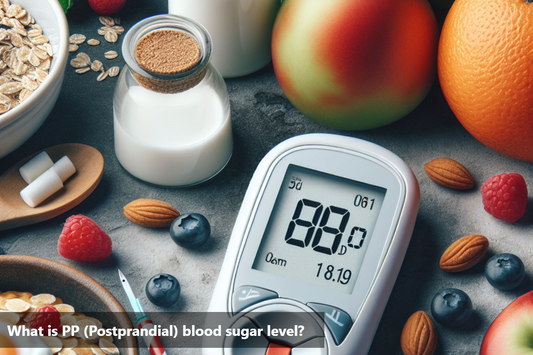An insulin dosage chart is a vital tool in managing diabetes effectively. It serves as a detailed guide for individuals with diabetes to track and administer the appropriate amount of insulin required to maintain their blood sugar levels within a target range. This chart typically outlines the dosage of various types of insulin, such as basal insulin for maintaining consistent levels throughout the day, mealtime insulin to cover carbohydrates consumed during meals, and correction doses to address high blood sugar levels.
Understanding an insulin dosage chart is crucial for individuals with diabetes to achieve optimal blood sugar control and prevent complications associated with high or low blood sugar levels. By following the recommendations on the chart, individuals can personalize their insulin dosing regimen based on factors like their meal patterns, activity levels, and current blood sugar readings.
Components of an Insulin Dosage Chart
-
Basal Insulin: Basal insulin is a crucial component of an insulin dosage chart. It is the background insulin that helps maintain blood sugar levels throughout the day and night. Basal insulin is typically long-acting and is not directly related to food intake.
-
Mealtime Insulin: Mealtime insulin, also known as bolus insulin, is another key element in the insulin dosage chart. This type of insulin is taken before meals to help the body process the glucose obtained from food. Mealtime insulin needs to be adjusted based on the amount of carbohydrates consumed.
-
Corrections: Corrections or supplemental insulin doses are given to correct high blood sugar levels. These doses are often calculated based on the blood sugar reading and a correction factor determined with the help of healthcare providers. Corrections are essential for managing unexpected spikes in blood sugar.
-
Importance of Each Component: Basal insulin provides a baseline level of insulin to keep blood sugar stable between meals and overnight. Mealtime insulin covers the glucose increase from food consumption, while correction doses help manage elevated blood sugar levels effectively.
Understanding these components of an insulin dosage chart is vital for individuals managing diabetes. Properly balancing and adjusting these elements based on individual needs and guidance from healthcare providers can significantly improve diabetes management and overall well-being.
Insulin Correction Dose Chart: Managing Blood Sugar Levels
In this chart, we'll operate under the assumption that your desired premeal blood sugar level is 120 mg/dL, and the effectiveness of 1 unit of fast-acting insulin is to reduce your blood sugar by 50 points.
|
Blood glucose |
60–120 |
120–170 |
170–220 |
220–270 |
270–300 |
|---|---|---|---|---|---|
|
Insulin correction |
0 units |
1 unit |
2 units |
3 units |
4 units |
In the event that your blood sugar falls below 60, refrain from administering insulin. Instead, promptly consume 15 grams of carbohydrates.
If your blood sugar registers at 300 or higher, it's essential to assess your ketone levels and promptly consult your healthcare provider.
Factors to Consider
When it comes to adjusting insulin dosage, several crucial factors need to be taken into consideration to effectively manage diabetes through an insulin chart.
-
One primary factor to keep in mind is physical activity. Engaging in exercise or any form of physical movement can significantly impact blood sugar levels. It is essential to monitor these levels closely to determine if any adjustments in the insulin dosage are required.
-
Another pivotal factor is stress. Stress can trigger fluctuations in blood sugar levels, making it necessary to be mindful of how stress levels may be affecting your body's insulin needs.
-
Additionally, illness can also play a significant role in insulin dosage adjustments. When unwell, the body's insulin requirements may change, necessitating alterations in the dosage as per the sliding scale insulin chart dosage.
-
Moreover, food intake is a fundamental aspect to consider. The type and quantity of food consumed directly influence blood sugar levels, which, in turn, impact insulin dosage requirements. Being conscious of one's dietary choices and habits is vital in maintaining stable blood sugar levels and appropriately adjusting the insulin dose.
By taking into account these various factors such as physical activity, stress, illness, and food intake, individuals can make informed decisions when adjusting their insulin dosage, ultimately aiding in better diabetes management through an insulin dose chart.
Insulin Dosage Reference: A Healthy Chart
An insulin dosage chart empowers individuals with diabetes to take control of their health by making informed decisions about their insulin doses. It promotes a structured approach to insulin management, fostering consistency and precision in dosage adjustments tailored to individual needs.
Proper utilization of a sliding scale insulin chart dosage can assist individuals in adjusting their insulin doses based on their blood sugar levels effectively. This method ensures that insulin doses are aligned with current glucose levels, leading to better blood sugar control and overall health management.
The successful management of insulin dosages through an insulin dosage chart can greatly contribute to improved quality of life for individuals with diabetes. By staying diligent in monitoring, adjusting, and adhering to recommended dosage guidelines, individuals can achieve better control over their condition and minimize potential health risks associated with unregulated blood sugar levels.
Confused if a product is Diabetic friendly or not? DiabeSmart is the first Food product range exclusively designed for Diabetics. Clinically tested and great tasting; so your food habits don't need to change.
This Blog post is an initiative by DiabeSmart, to provide accurate and Nutritionist / Doctor approved information related to Diabetes. DiabeSmart is India's first Food brand designed specifically for Diabetics, that has been clinically tested on Diabetics and Pre-Diabetics to deliver 55% - 70% lower Sugar spikes. DiabeSmart is part of Lo! Foods - India's leading brand for Everyday Functional Health foods.











